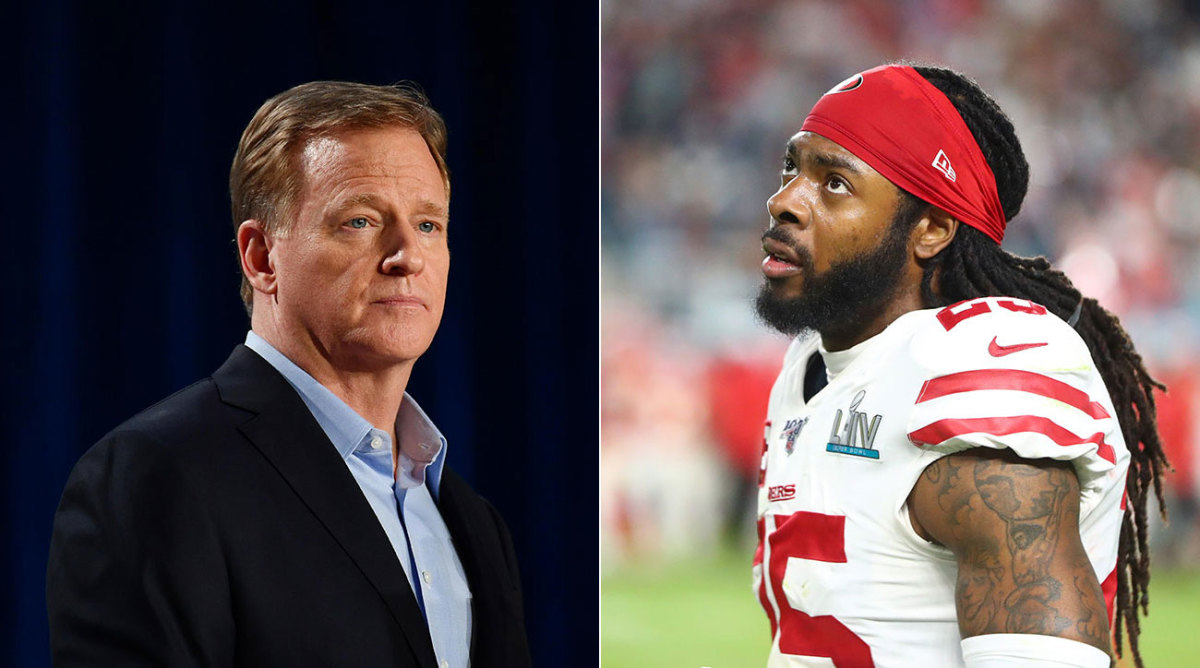NFL Owners Approve Principal Terms of New CBA, Now Players Must Vote

NEW YORK—NFL team owners briskly left a hotel in downtown Manhattan late Thursday afternoon, having approved the principal terms for a new 10-year collective bargaining agreement with the players. The attention now turns to the NFL Players Association, which will discuss on Friday whether to approve these same terms, negotiated between the NFL and the players union over the past 10 months.
The vote to approve was not unanimous among the 32 clubs, per a source with knowledge of the results. Notable changes among the terms voted upon include expanding the playoff field to include one extra team from each conference, for a total of 14 teams in the postseason, starting in 2020; a 17-game regular season with three preseason games, which would be instituted no earlier than 2021; and an increased revenue share for the players, up from 47 to 48 percent, or 48.5 percent if they move to the 17-game regular season.
The league meeting lasted slightly more than two hours, less time than some expected. Multiple owners declined comment as they departed, letting a statement distributed by the NFL do the talking. “I can’t comment on anything. I’m sorry,” said Giants co-owner John Mara. Others departed through back exits or with cell phones held to their ears. The statement contended that the terms accepted by the NFL clubs “will transform the future of the game, provide for players—past, present, and future—both on and off the field, and ensure that the NFL’s second century is even better and more exciting for the fans.”

Player leadership will convene via a conference call on Friday. Two-thirds of the 32 player reps, and a majority of all NFL players, would need to approve the terms for a new CBA. It’s not clear when negotiations would resume if the players do not agree to these terms, but the league’s statement indicated that if these terms are not accepted they will not keep trying for an agreement before the new league year. The current CBA expires in March 2021.
“Since the clubs and players need to have a system in place and know the rules that they will operate under by next week,” the statement reads, “the membership also approved moving forward under the final year of the 2011 CBA if the players decide not to approve the negotiated terms.”
The new league year begins March 18, and whether or not an agreement is reached will have an impact on free agency. For example, the final year of the current CBA allows teams to designate both one franchise player and one transition player—but if the players also agree to move forward with the new CBA, teams would again only be able to tag one player in 2020. That has big implications for a club like the Cowboys, which has several contract extensions to get done this offseason, including QB Dak Prescott and WR Amari Cooper.
Several prominent players have spoken out against the 17-game regular season, including 49ers cornerback Richard Sherman and Jaguars RB Leonard Fournette. Packers LT David Bakhtiari questioned the imbalance in the revenue split between owners and players in a tweet he posted Thursday morning with the hashtag #KnowYourWorth. On the other hand, Jets safety Jamal Adams tweeted his support for an extra game and extra revenue then deleted the post after Sherman replied asking him to call him to talk more deeply about the issue.
Per a source with knowledge of the terms the NFL clubs considered on Thursday, a 17th game would come with a modified season structure, including a longer acclimation period in training camp, fewer joint practices during the preseason and fewer allotted padded practices. In addition, a roster expansion has been proposed, with two new spots on both the practice squad and the active roster. Other gains for the players would include increased minimum salaries and expanded benefit packages for current and former players. It stands to reason that part of the players’ conversations on Friday will be if they are getting enough back if they agree to a 17-game season—or if there are enough players who want to continue fighting for more.
As evidenced by the speed of Thursday’s meeting, the owners are clearly eager to get a new CBA done so they can turn their attention to the TV contracts set to expire in 2021 and 2022. They also must feel good about the terms that have been negotiated until this point. Now, it’s up to the players to decide where they stand: Is there greater value in accepting these terms or continuing to fight for more?
Question or comment? Email us at talkback@themmqb.com.
